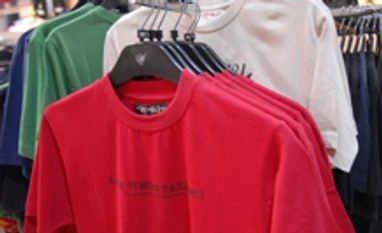The duty was levied on garments with retail price over Rs 1,000, which, according to industry sources, forms half of the organised apparel retail industry. The finance minister had announced a levy of two per cent excise on branded garments worth more than Rs 1,000 if input tax credit is not claimed or 12.5 per cent with input tax credit.
According to companies, while the move will result in an immediate price rise of five per cent, it would also add hassles in maintaining records. “With international brands coming to India, part of exporters' supply will be to the former's domestic stores in the country. Even otherwise, there is now an overall hassle of maintaining records. In preparation of GST (goods and services tax), an unnecessary hassle of paying excise duty for one year has been created,” said Prashant Agarwal, joint managing director of Wazir Advisors. According to Agarwal, due to an abatement of 40 per cent resulting in 60 per cent of the maximum retail price being taxed at two per cent excise duty, while the net applicable excise duty would be 1.2 per cent only, it would still amount to a direct rise of five-six per cent in retail prices of ready-made garments.
More From This Section
The organised industry is estimated to be worth around Rs 1.5 lakh crore ($22 billion) and the unorganised one about Rs 3 lakh crore ($44 billion).
Rahul Mehta, president of Clothing Manufacturers' Association of India (CMAI) said the prices will go up to take into account cost of retail, marketing, distributors' margins, as well as retailers' margins.
The excise duty will see 50 per cent of the organised branded apparel retail market being impacted. On the other hand, apparel with retail price of Rs 1,000 and above form 30 per cent of the total ready-made garment industry, including the unorganised market.
)